Switzerland welcomes UN vote to scrutinise Security Council veto
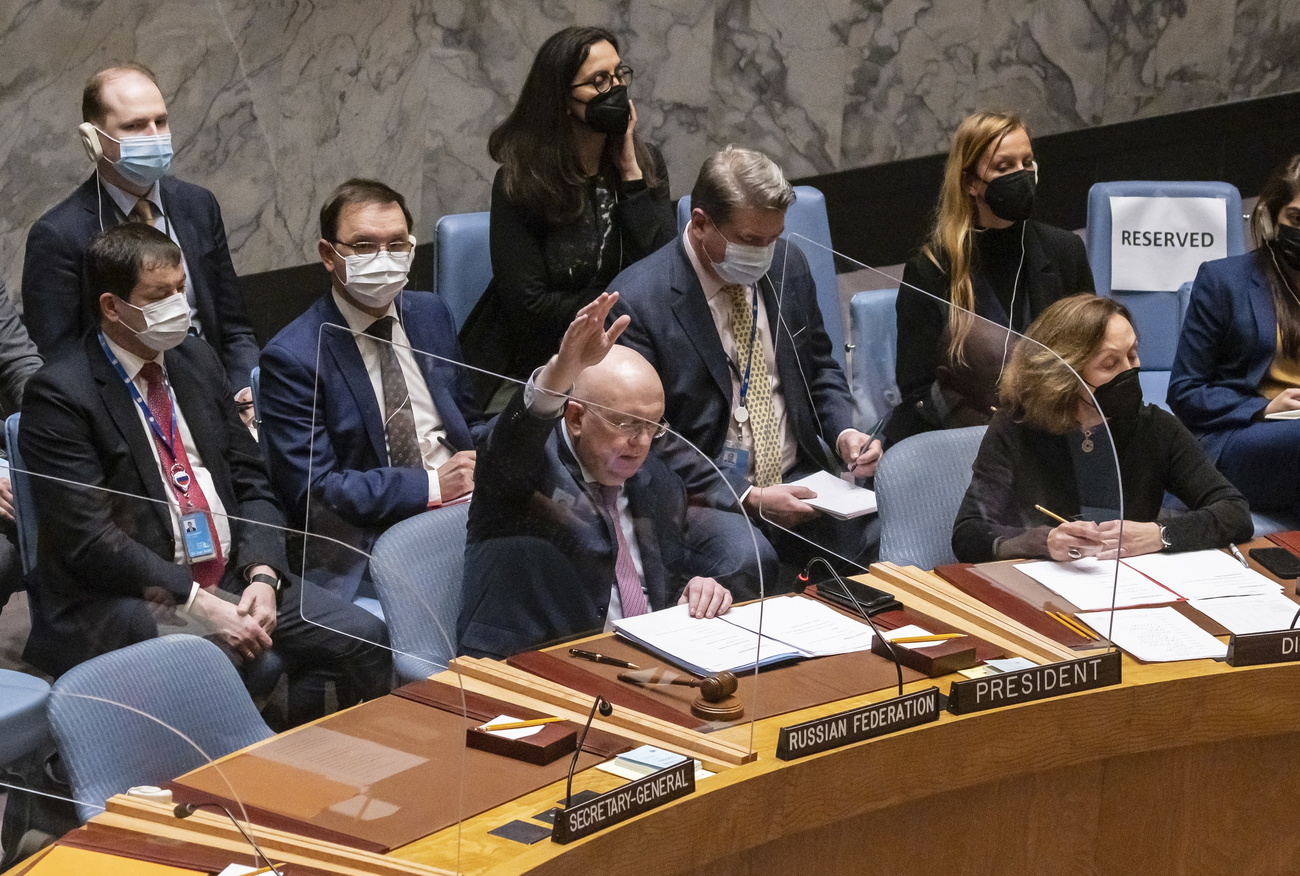
Switzerland has welcomed Tuesday's UN General Assembly resolution on the use of Security Council veto powers, saying it was a step forward in strengthening multilateralism.
The resolution, introduced by Liechtenstein, was co-sponsored by 83 states, including Switzerland, and was adopted by consensusExternal link. It provides that any of the five permanent Security Council members – Russia, China, the US, the UK and France – that wields their veto power must come and explain the decision to the 193-member General Assembly.
The vote comes after Russia vetoed a UN Security Council resolution on February 25 condemning its invasion of Ukraine and demanding that Moscow withdraw its forces.
“We see this resolution as a further call to restrict the use of the veto, as it enhances accountability and transparency when a permanent member of the Council exercises this right,” Swiss Ambassador to the UN in New York Pascale Baeriswyl told the General Assembly after the vote.
She said Switzerland, along with its partners, had been working for nearly two decades “for a more transparent and effective Security Council” and that “a more responsible and restrictive use of the veto is a key element of this work”.
“We support efforts to encourage the permanent members to renounce the use of the veto, particularly in cases of genocide, crimes against humanity and war crimes,” Baeriswyl said.
Liechtenstein said its purpose was to mandate a meeting of the General Assembly each time a veto is cast in the Security Council.
“Liechtenstein is bringing the resolution because we believe it makes a contribution to upholding multilateralism,” the country’s UN political coordinator Matt Edbrooke told SWI swissinfo.ch.
“We have followed with growing concern the inability of the Security Council to take effective action on threats to international peace and security due to the very deep political divisions among the permanent members in the Council.”
Historic veto power
Only the five permanent members have the power to veto a resolution in the 15-member UN Security Council, the UN’s supreme body — a power they were granted in the wake of the Second World War. Use of the veto has in recent years blocked UN action, particularly on atrocities in places like Syria, Myanmar and now Ukraine.
Russia has used its veto power 143 times since 1946, the US 86 times and the UK 30 times, while China and France have both used it 18 times, according to news agency AFP.
Neutral Switzerland hopes to become a non-permanent member of the Security Council in June for the first time. “As a candidate to the Security Council, Switzerland will remain fully committed to dialogue and the peaceful resolution of conflicts,” Baeriswyl stated.
Also co-sponsoring the resolution, US Ambassador to the UN Linda Thomas-Greenfield pointed to what she called “Russia’s shameful pattern of abusing its veto privilege over the past two decades”. The UK said the resolution now gives “the entire UN membership a voice on the use of a veto”.
Commenting on TwitterExternal link, analyst Richard Gowan of the NGO International Crisis Group said it was “interesting to note that neither Russia nor China broke consensus” on the General Assembly vote.
“My guess is Russia thinks it can win over a lot of GA members by framing its uses of the veto power as a necessary response to P3 pressure in the UN Security Council,” he wrote, referring to the US, UK and France.
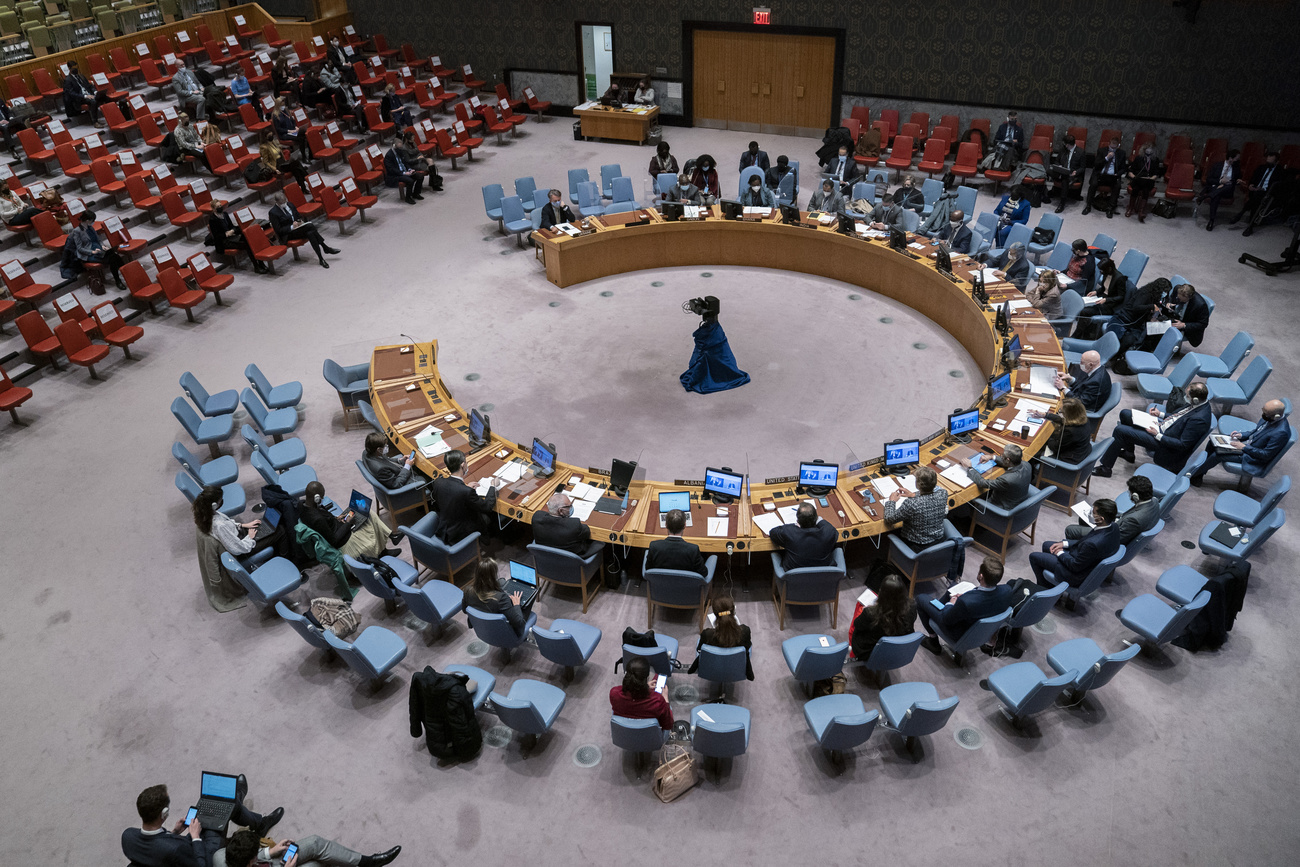
More
Russia’s war in Ukraine highlights UN fault lines

In compliance with the JTI standards
More: SWI swissinfo.ch certified by the Journalism Trust Initiative
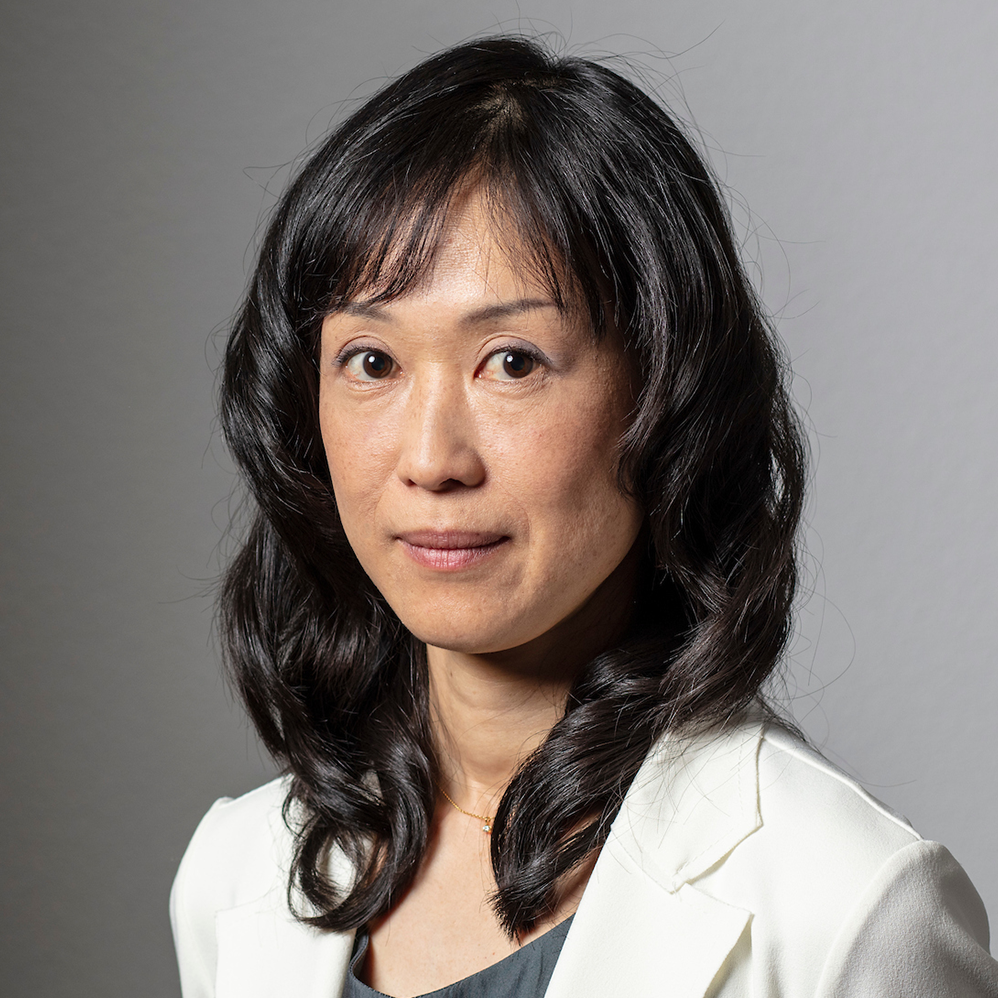










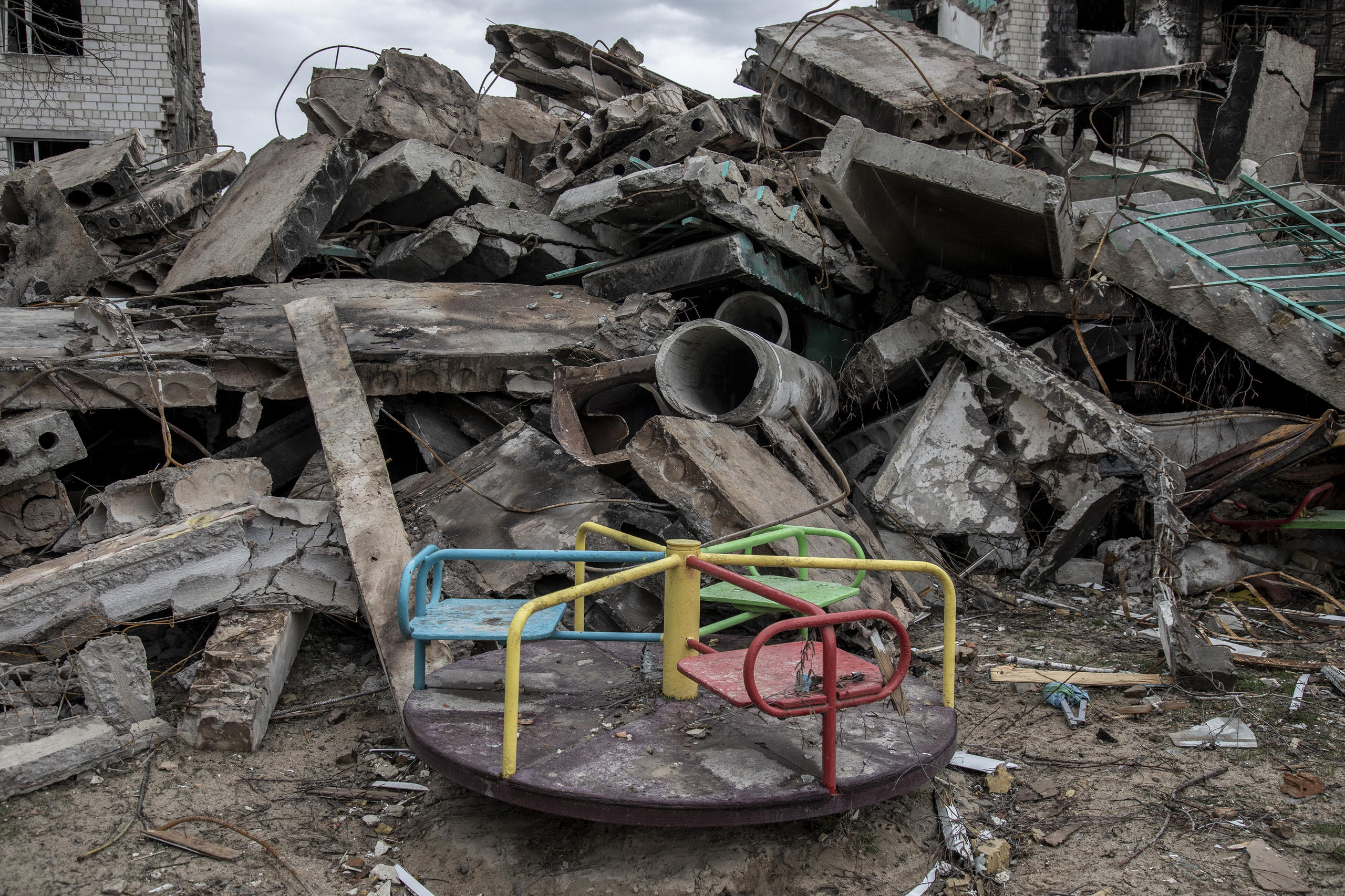
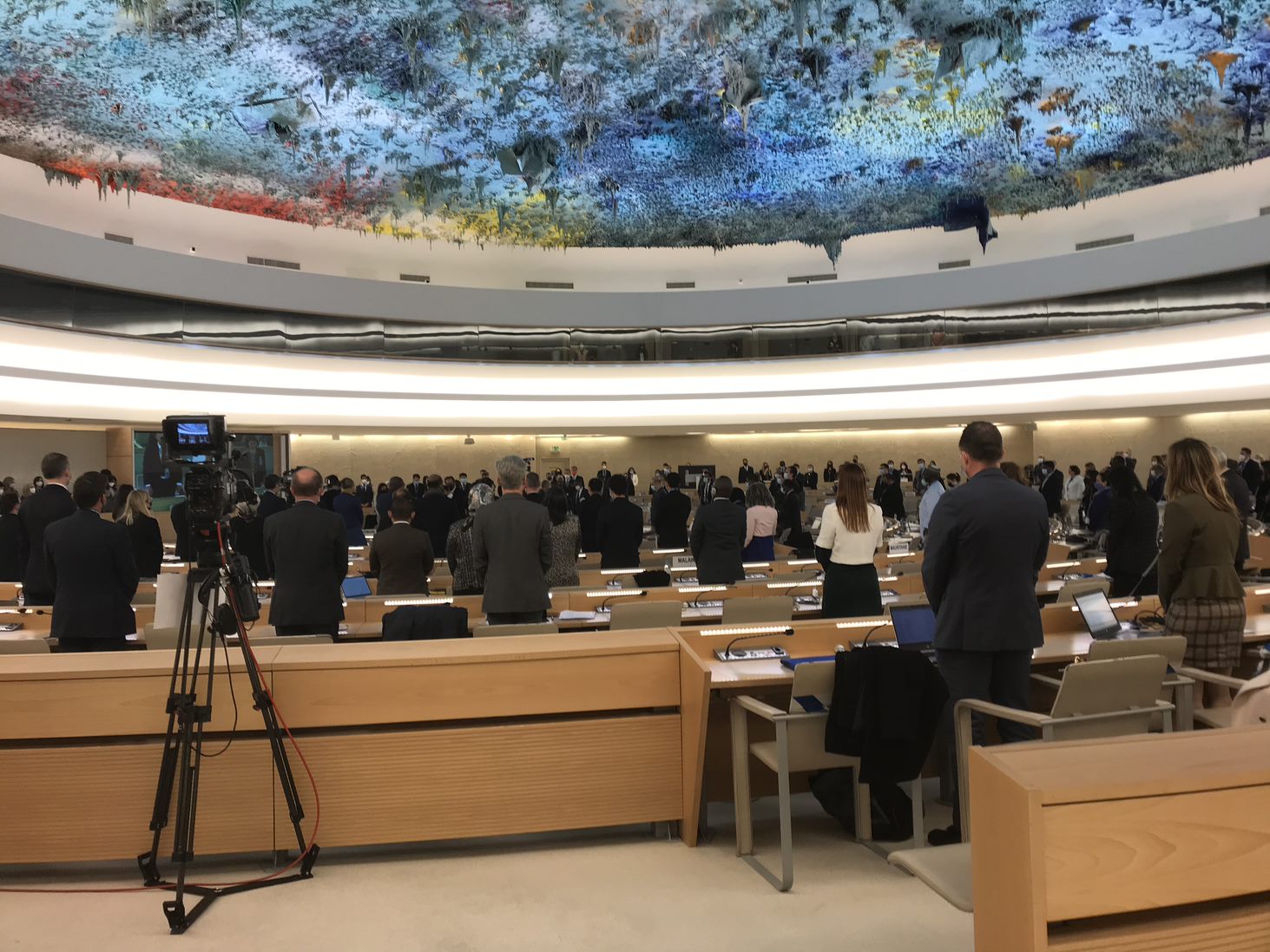
You can find an overview of ongoing debates with our journalists here . Please join us!
If you want to start a conversation about a topic raised in this article or want to report factual errors, email us at english@swissinfo.ch.